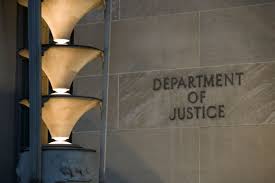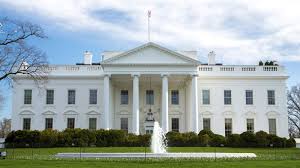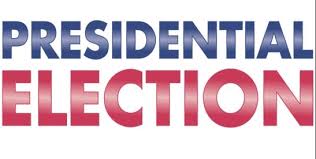The Trump Administration’s Focus on the Department of Justice and Priorities (Part III of III)

The Justice Department is about to undergo some fundamental changes. The 2nd Trump Administration will take some initial broad strokes designed to increase accountability and control of prosecutors and laws enforcement.
The FBI
The first on the chopping block is the FBI. Under existing law, the FBI is a component of the U.S. Department of Justice, presumably under the control and oversight of the Attorney General. The Trump Administration will increase political oversight of the FBI, to reduce the risk that the FBI can launch criminal investigations in response to political pressures. As a poster child for this abuse, the Trump Administration regularly cites the FBI’s Crossfire Hurricane investigation of the Trump Administration and its ties to Russia during the 2016 election.
To eliminate this potential for the FBI to engage in “rouge” investigations, the Justice Department will fold the FBI to oversight and control by political appointees in the Justice Department. According to advocates of this initiative, DOJ officials should be required to review and approve any investigation with serious political overtones.
DOJ’s increased oversight of the FBI may have an impact on high-profile criminal investigations that require regular scrutiny of FBI investigations lead by federal prosecutors. As a result, DOJ’s action may reduce slightly the number and extent of potential white collar investigations involving political actors. The full impact of increased FBI oversight is difficult to predict since it will depend on the scope of the initiative and how far DOJ will insert itself into FBI activities.
Criminal Enforcement

When President Trump first came into power in 2016, commentators predicted a significant reduction in criminal enforcement of corporate fraud, the Foreign Corrupt Practices Act (“FCPA”), antitrust, and environmental violations. Contrary to all the dime-a-dozen predictions, FCPA enforcement during 2016 to 2020 was robust and no effort was made to eliminate enforcement of foreign bribery schemes. Indeed, the Trump Administration imposed corporate compliance monitors in a few of the more egregious bribery cases.
With respect to antitrust, the Trump Administration’s record between 2016 to 2020 included reduced civil enforcement and fairly steady criminal enforcement. Since that time however a broader consensus between Democrats and Republicans has resulted in bipartisan support of antitrust civil enforcement efforts. The Biden Administration’s aggressive antitrust enforcement program has been supported by both Democrats and Republicans. It is not likely that there will be a significant change in this area.
Corporate criminal enforcement has declined steadily over the last ten years. Frankly, since the 2008 financial crisis and DOJ’s failure to prosecute responsible officials, DOJ’s reputation and commitment to white collar enforcement has not recovered. Even the Biden Administration’s record was poor in white collar enforcement, particularly its failure to increase FCPA enforcement. At the beginning of its term, the Biden Administration announced anti-corruption enforcement as an important priority but failed to deliver on this promise.

The 2nd Trump Administration is not likely to ramp up corporate criminal enforcement in any area, except with respect to sanctions and export controls. Aside from trade enforcement, however, DOJ’s prosecutions of companies for fraud, environmental and other white collar crimes will probably remain static with no significant increase or decrease.
DOJ’s civil and criminal enforcement of environmental laws will suffer significant cutbacks. The first Trump Administration reduced regulatory initiatives and DOJ civil and criminal enforcement of environmental laws. This trend will recur once the new Administration is in place. It was not an enforcement priority during the first administration and will not change in the second administration.
Immigration Enforcement
A top priority for the new Trump Administration is aggressive immigration enforcement, especially along the southern border. This priority will require significant resources, most of which will be allocated at the specific U.S. Attorneys’ Offices. AUSAs will be tagged for this priority, working with law enforcement agents from the Department of Homeland Security and some from the FBI. The adjustment of priorities could have an impact on other Justice Department responsibilities and prosecution priorities. Almost all federal prosecutions are conducted by US Attorneys’ Offices in 94 districts in the United States. Only a small percentage of federal criminal cases are directly handled by DOJ prosecutors. By requiring federal prosecutors to prioritize immigration enforcement, DOJ may be forced to stretch its resources to the detriment of other priorities.
Healthcare Fraud
One important exception to the general trend at DOJ will be healthcare fraud. These efforts do not trigger political considerations since there is broad support for prosecuting healthcare fraud. Federal prosecutors and law enforcement (FBI and HHS-OIG) resources are firmly in place and dedicated to enforcement of fraud, anti-kickback and the False Claims Act. Again, aggressive enforcement of healthcare fraud is likely to continue at a steady pace.

DOJ’s Compliance Expectations
The Justice Department has been leading on the importance of effective ethics and compliance programs — its three editions of the Evaluation of Corporate Compliance Programs has set important standards and expectations. DOJ will not alter these expectations as a general matter — it is hard to say how this factor will be weighed in future corporate resolutions.
Generally, prior Administrations have been supportive of the ethics and compliance professional as important actors in the corporate governance universe. This recognition will continue in the new Administration. While expectations may change at the margins, companies should continue to stress the importance of ethics and compliance programs and the need to promote a culture of ethics and compliance.
















Mr. Volkov,
Your message to readers appears on point with consideration of corporate crimes recently initiated by the DOJ and their Whistleblower program. The now existing DOJ corporate crime investigations should continue as planned, based on their success rate. Deputy Attorney General Marshall Miller recently announced “In the first few months of the Justice Department’s whistleblower awards program, we’ve already received more than 200 tips.” TD Bank and others have already plead guilty to crimes involving material support for terrorism and other violations. Emphasis was placed on the Voluntary Self-Disclosure policy by the DOJ which has proven successful in getting cooperation from wrongdoers.
The “Bad Actors” in today’s corporate world today now face a dilemma… should they self-disclosure or not? For those CEO’s that choose not to self-disclose until the very last moment, the risk is heavy… as you stated in your article, there may be changes in the margin’s, and one marginal change may be the deletion of the Voluntary Self Disclosure policy when Trump becomes President. This possibility becomes a huge risk for those corporate executives that wait too long while still in the 120 day margin as allowed by the DOJ, since the deadline could expire when the oath of office is taken by Trump.
I suspect 2025 will be a tough year for corrupt CEO’s that in the past were a food source for corporate corruption. One only has to obtain the FOIA reporting records of the Lobbyists working in Washington, DC to fully appreciate the true source of this corruption, a problem I suspect Trump will also address while in the white House.
Dennis Myhre, AIC
“Rogue.”